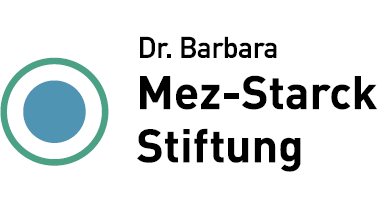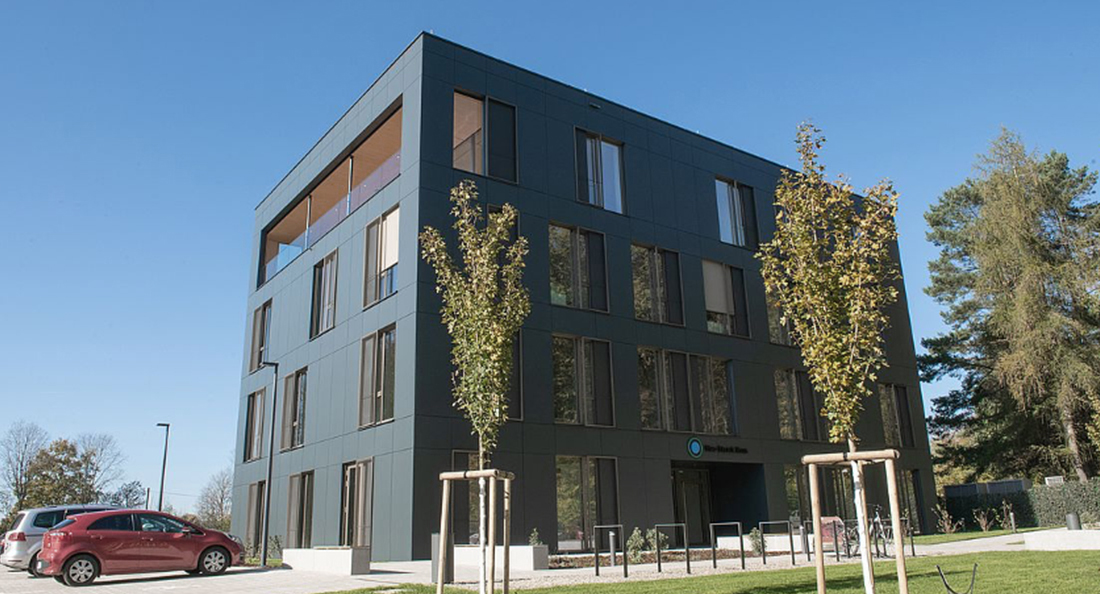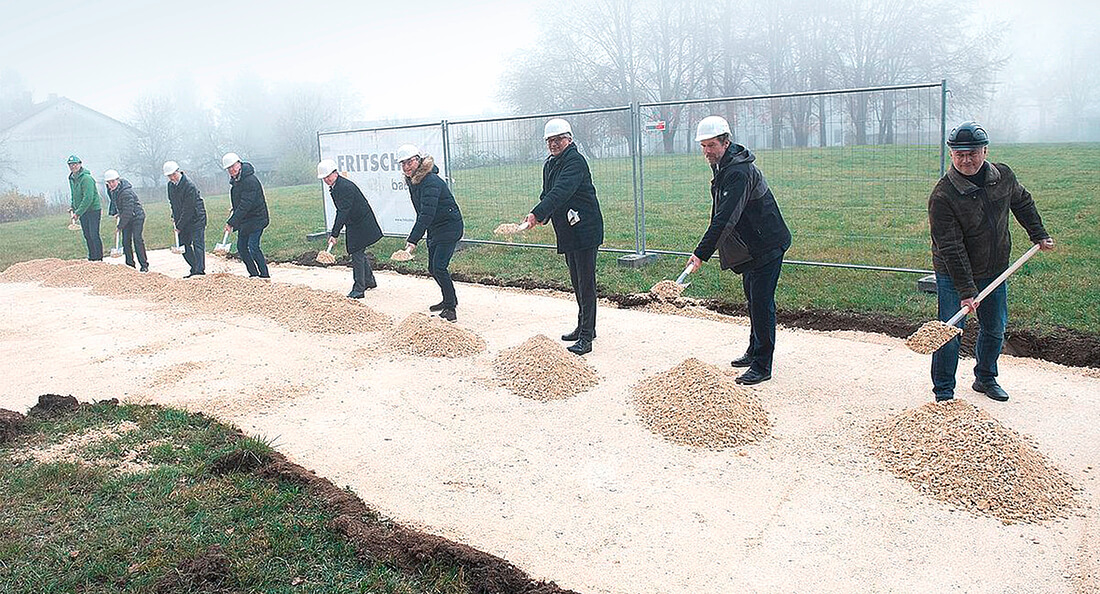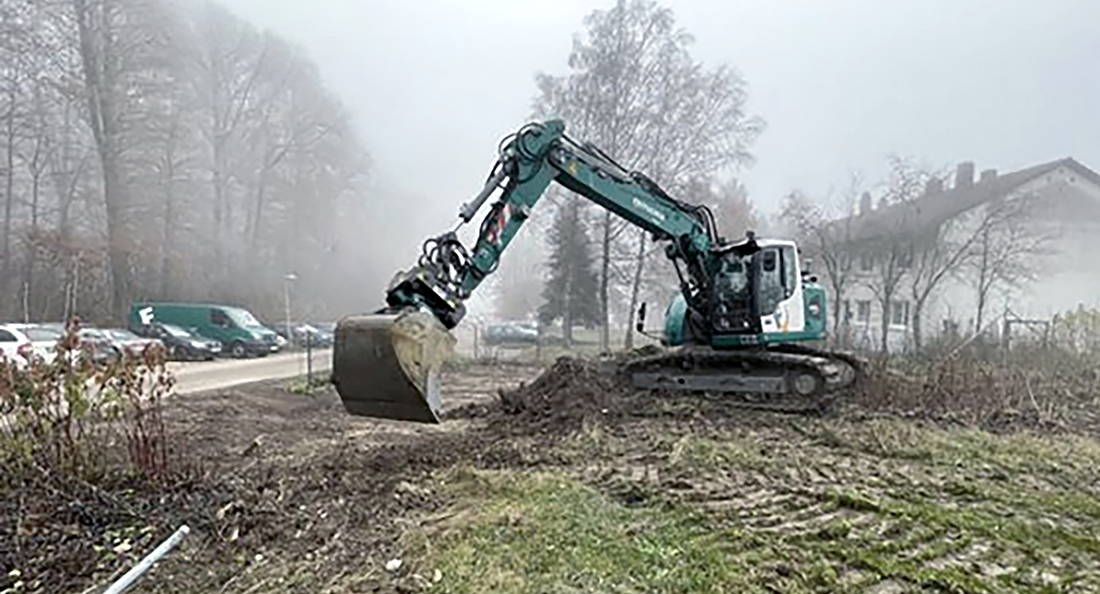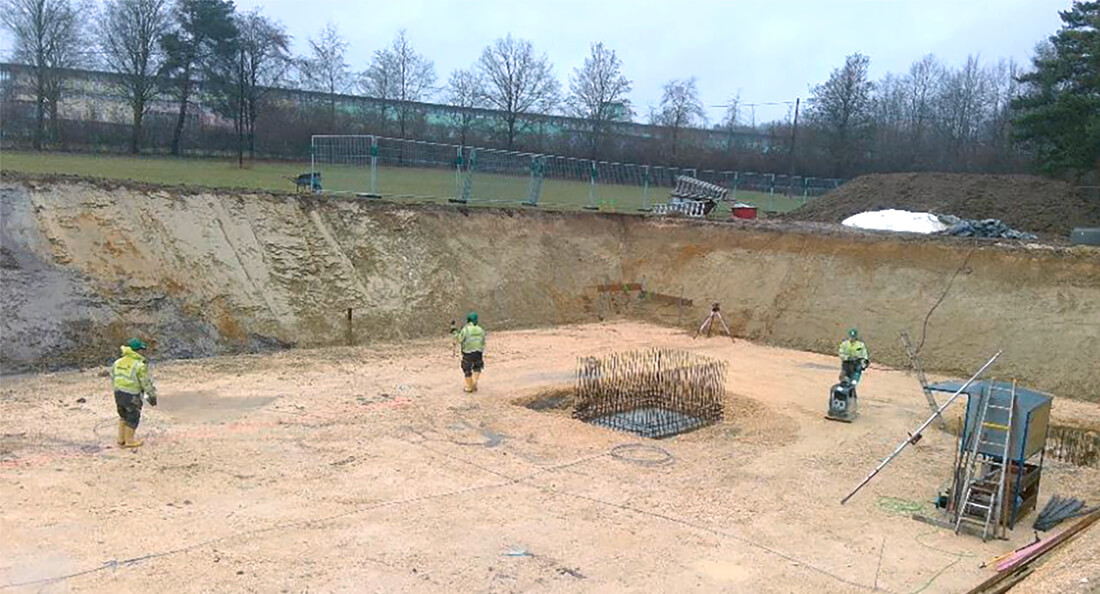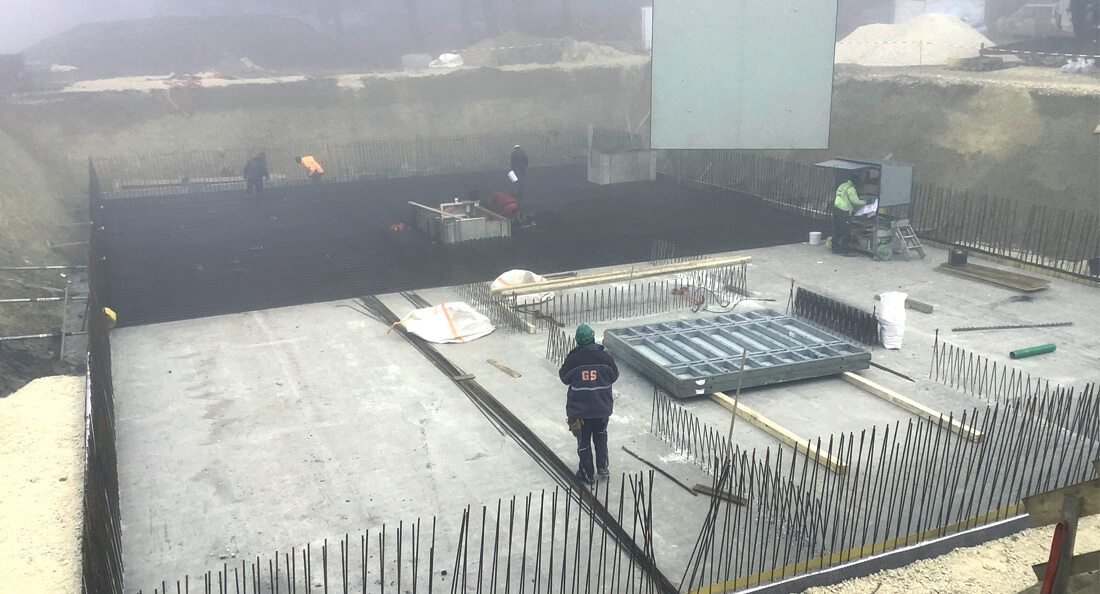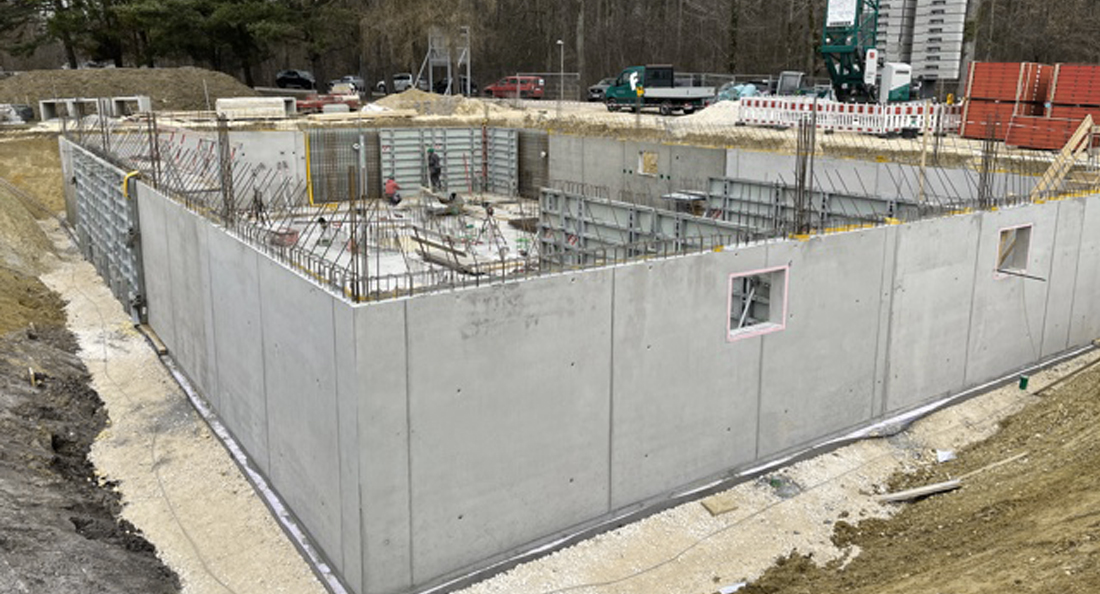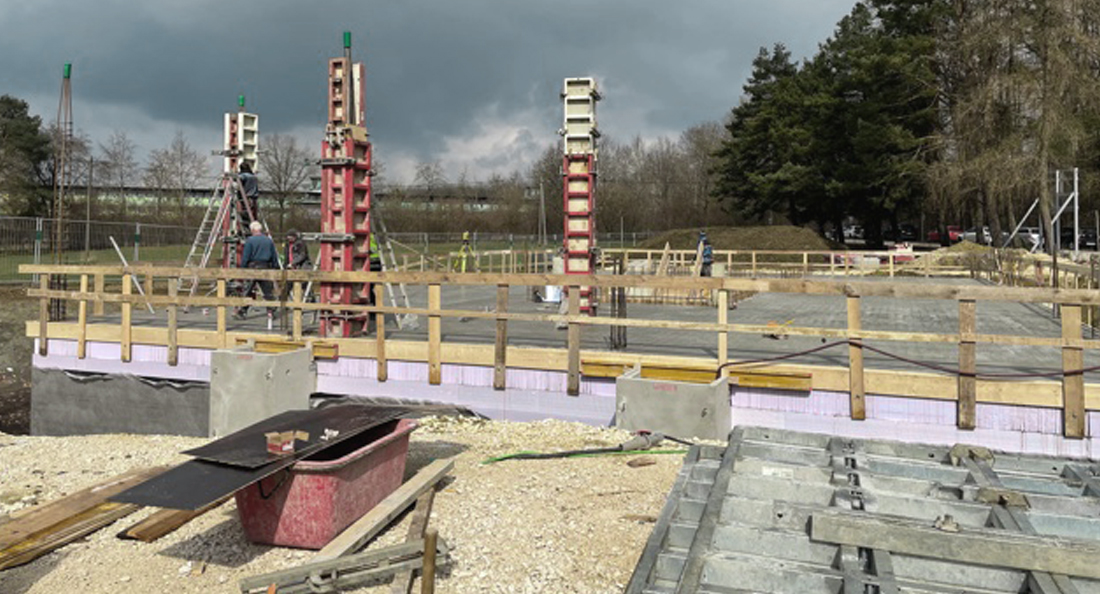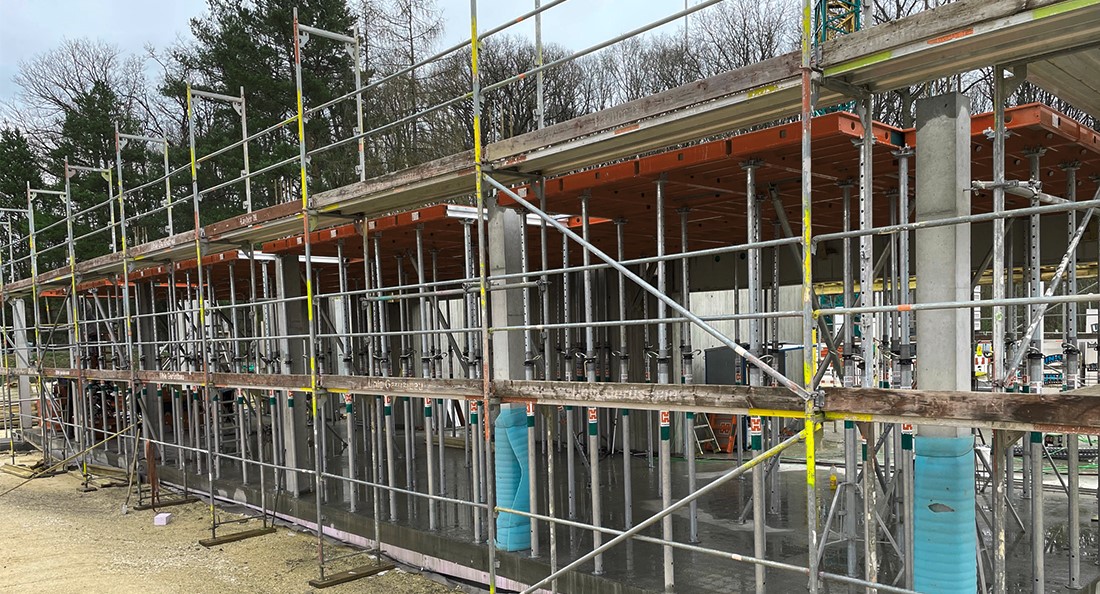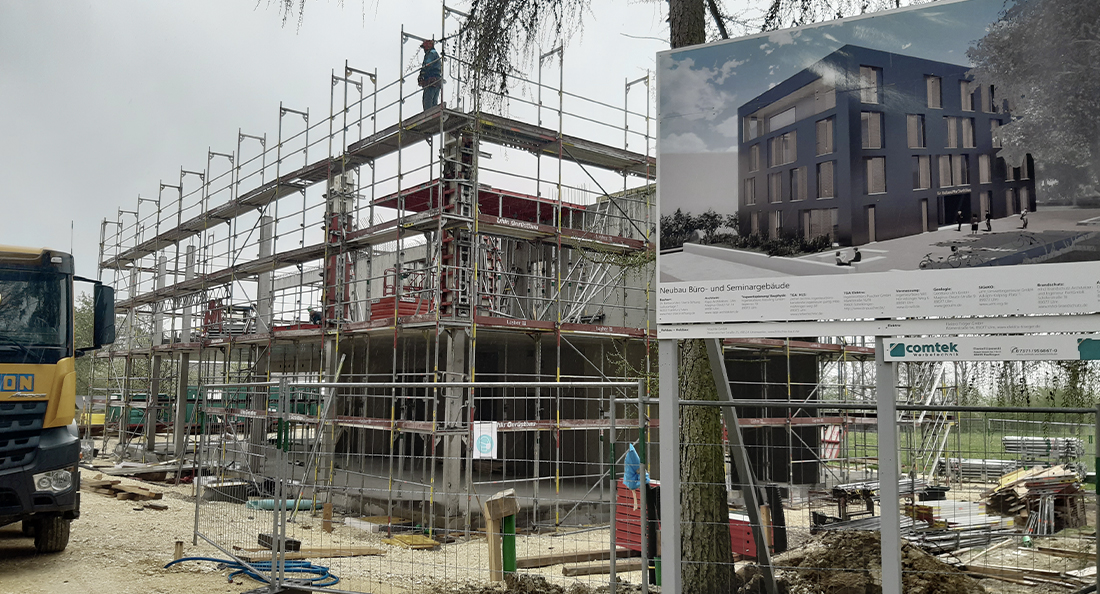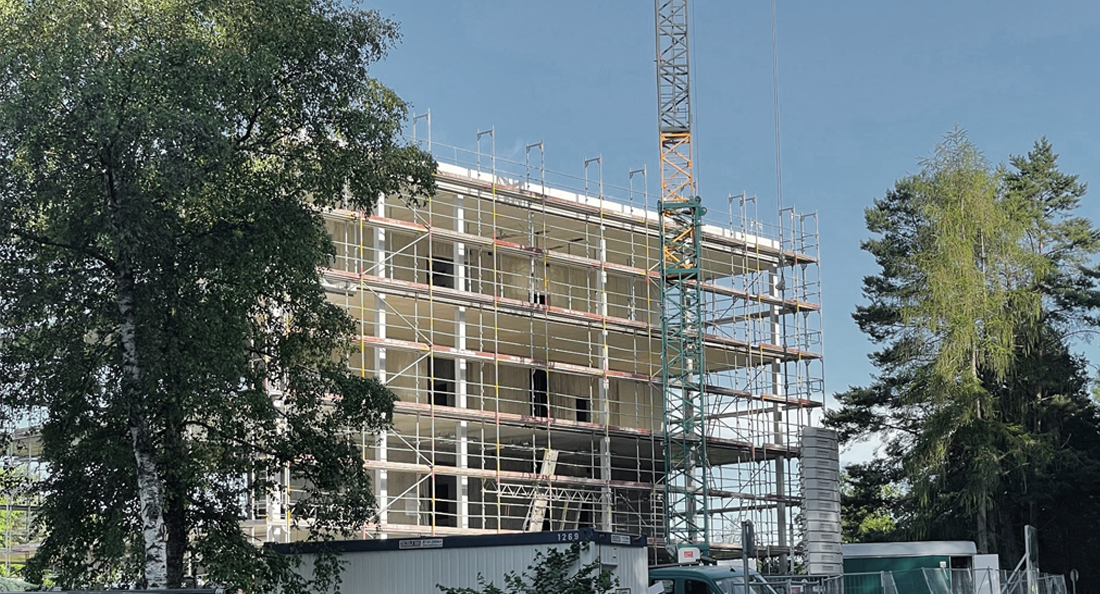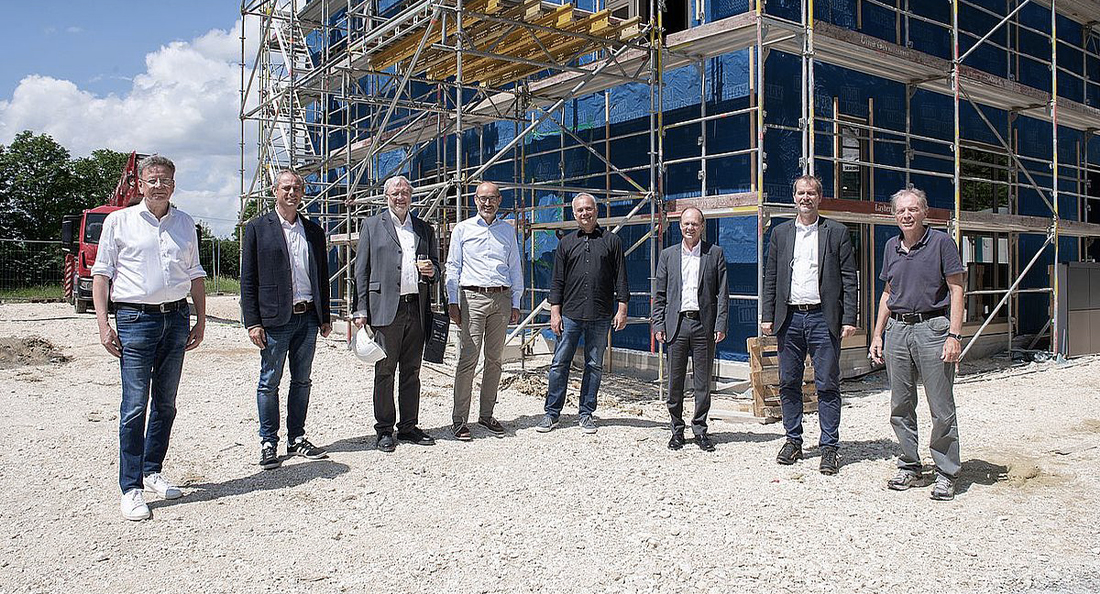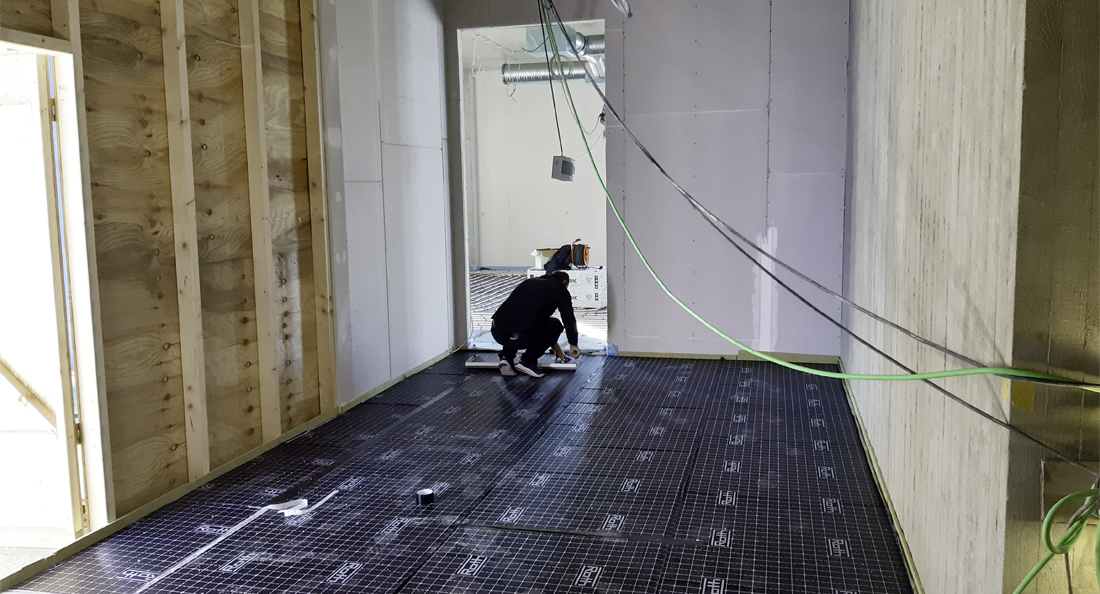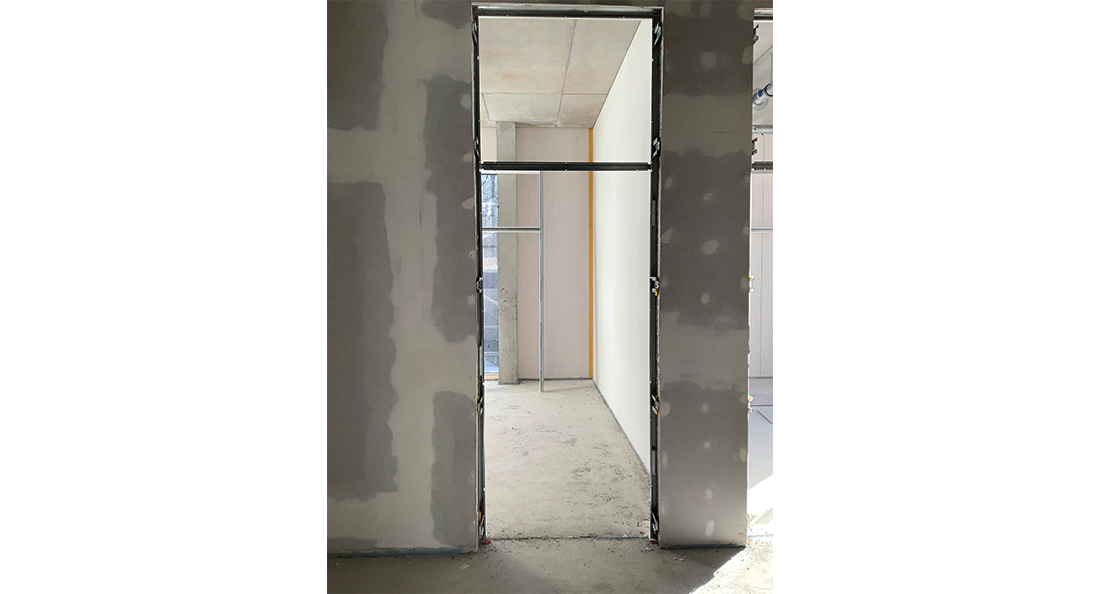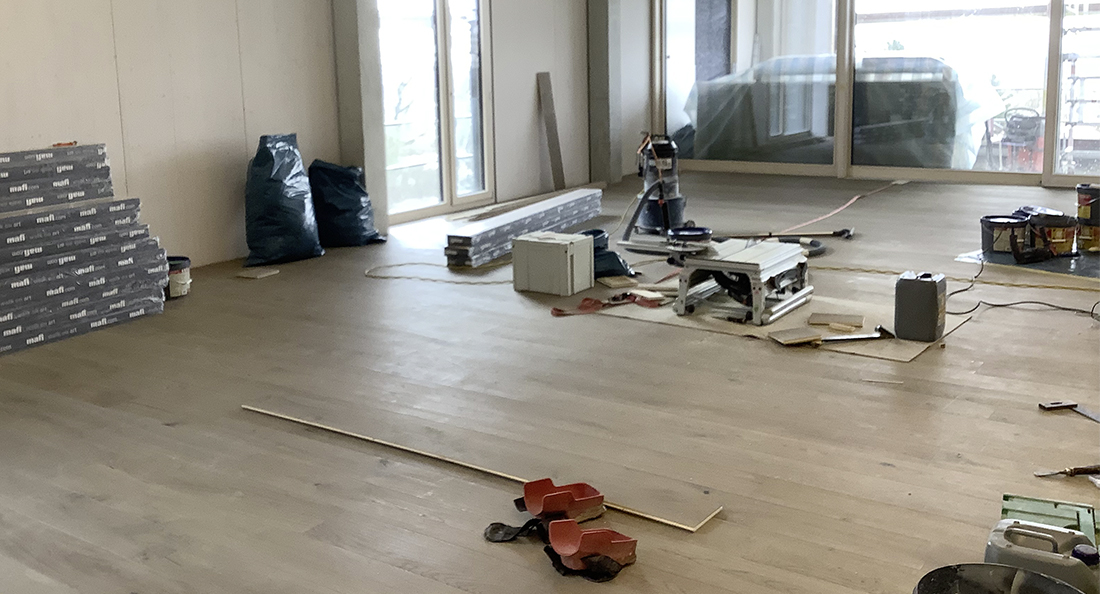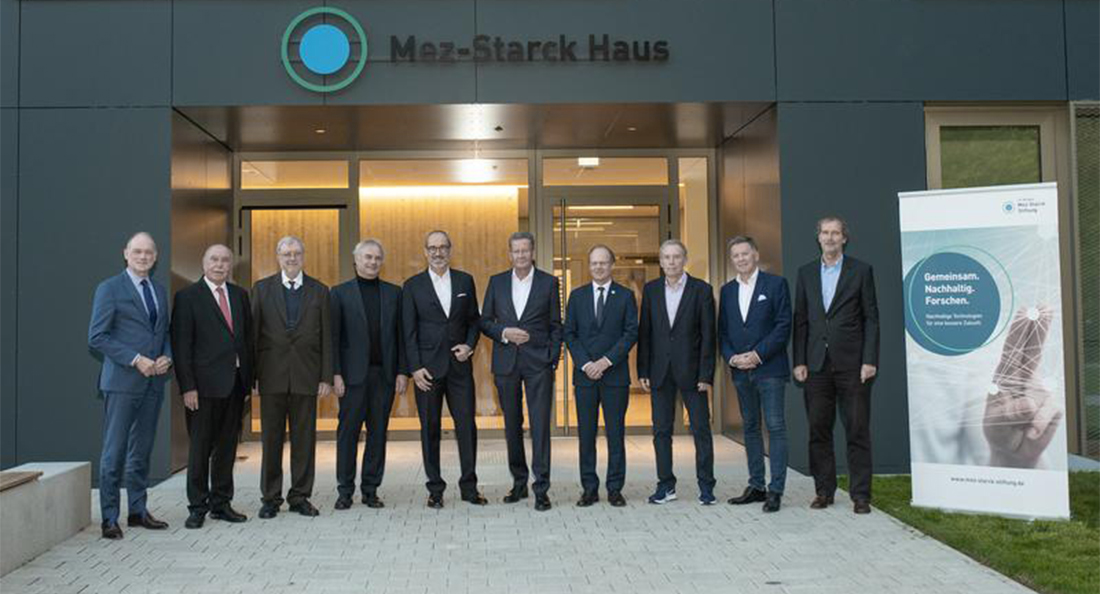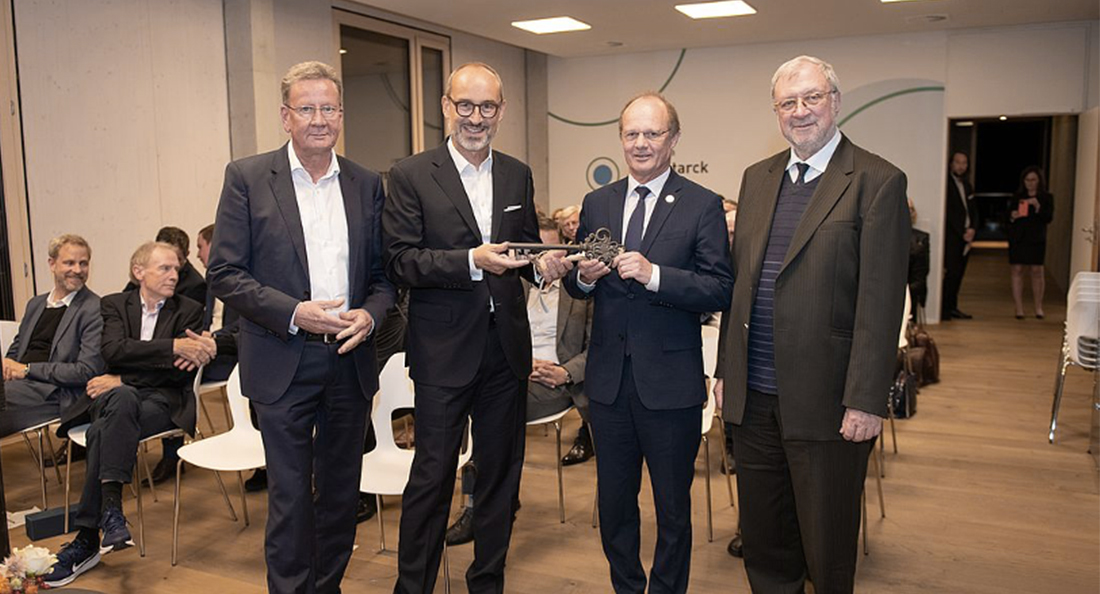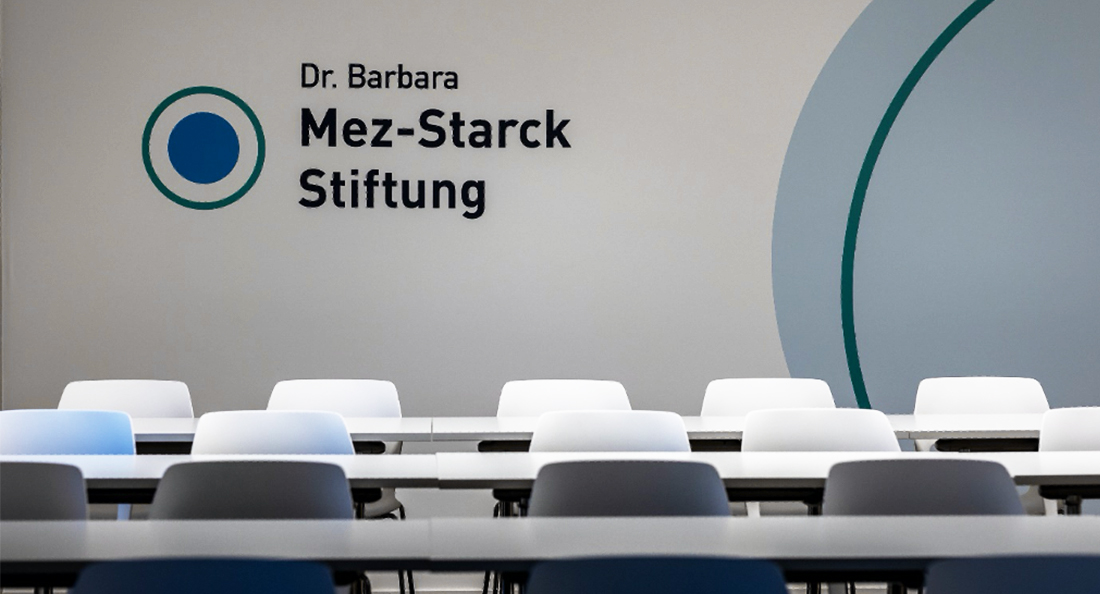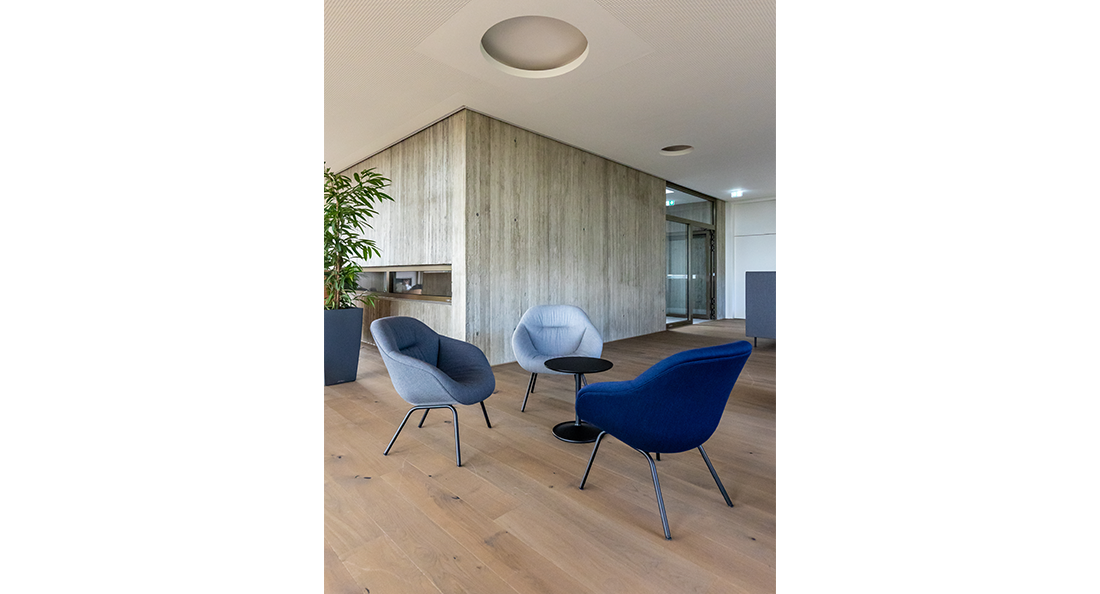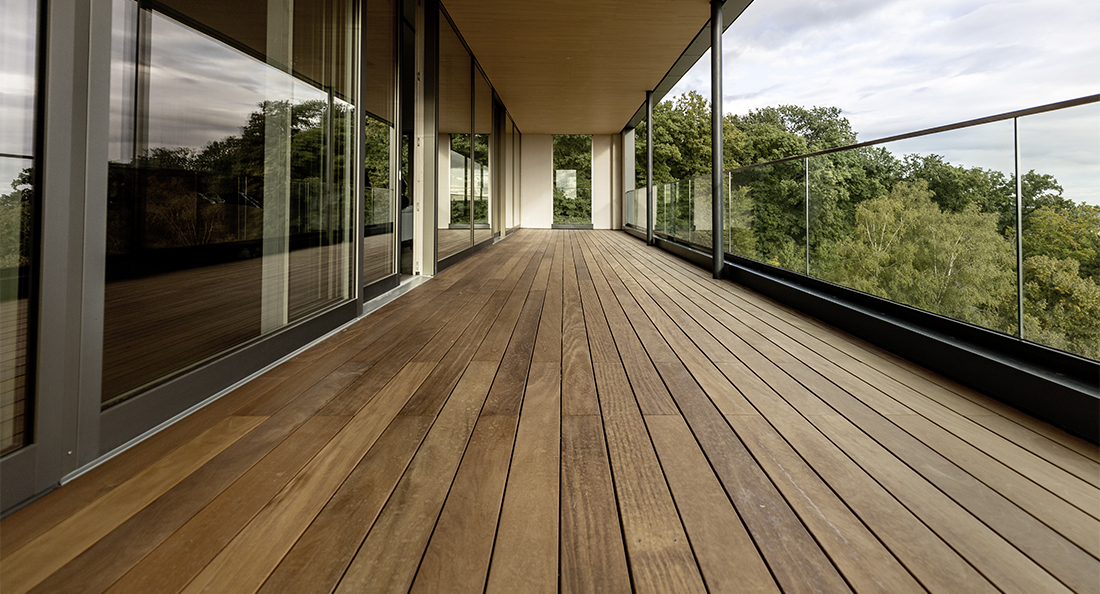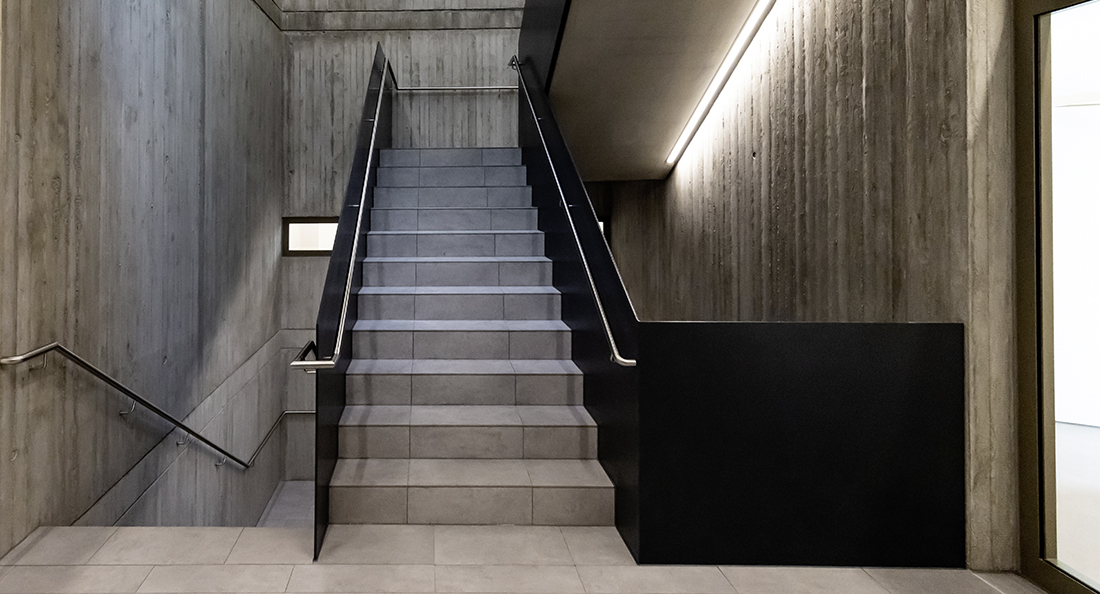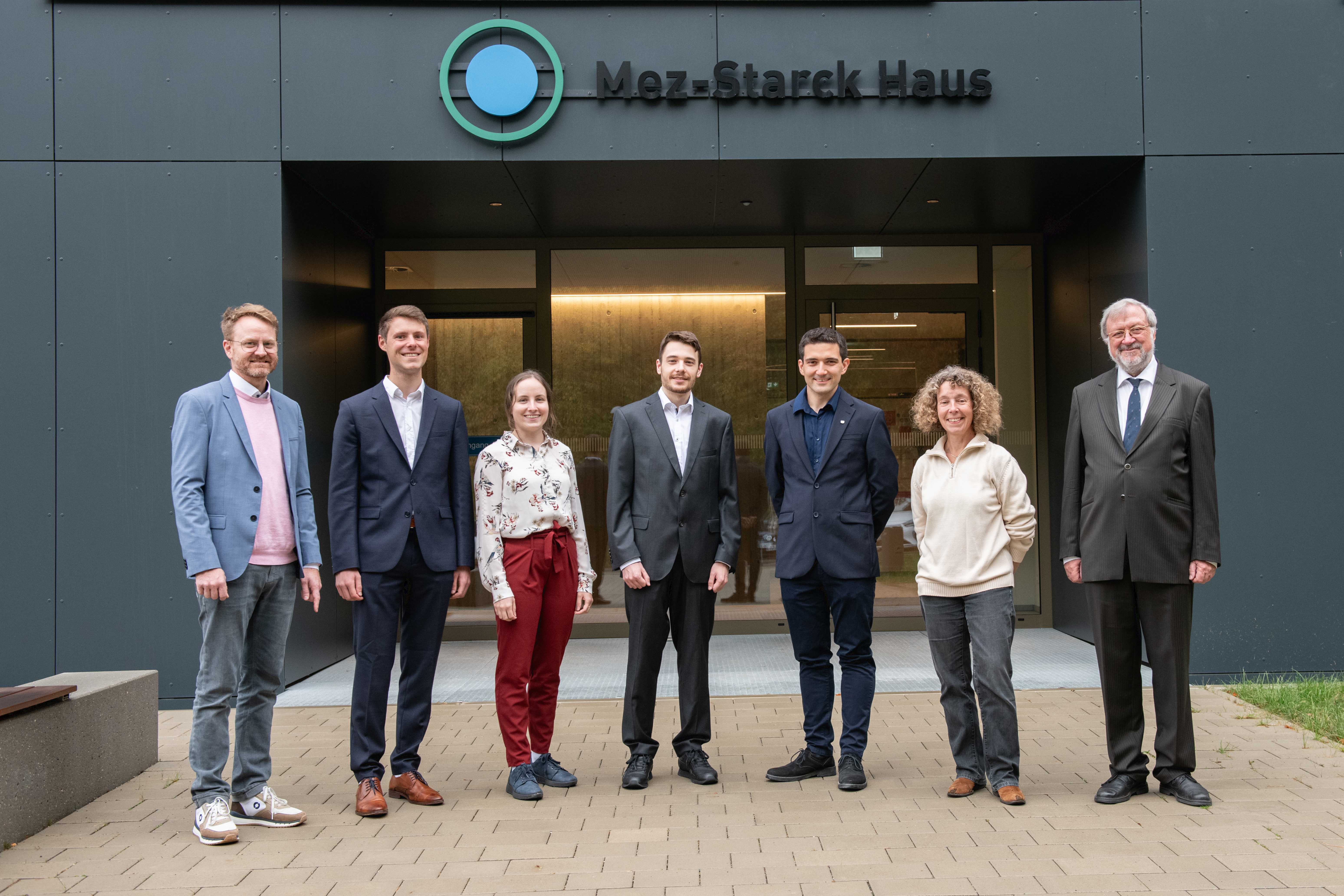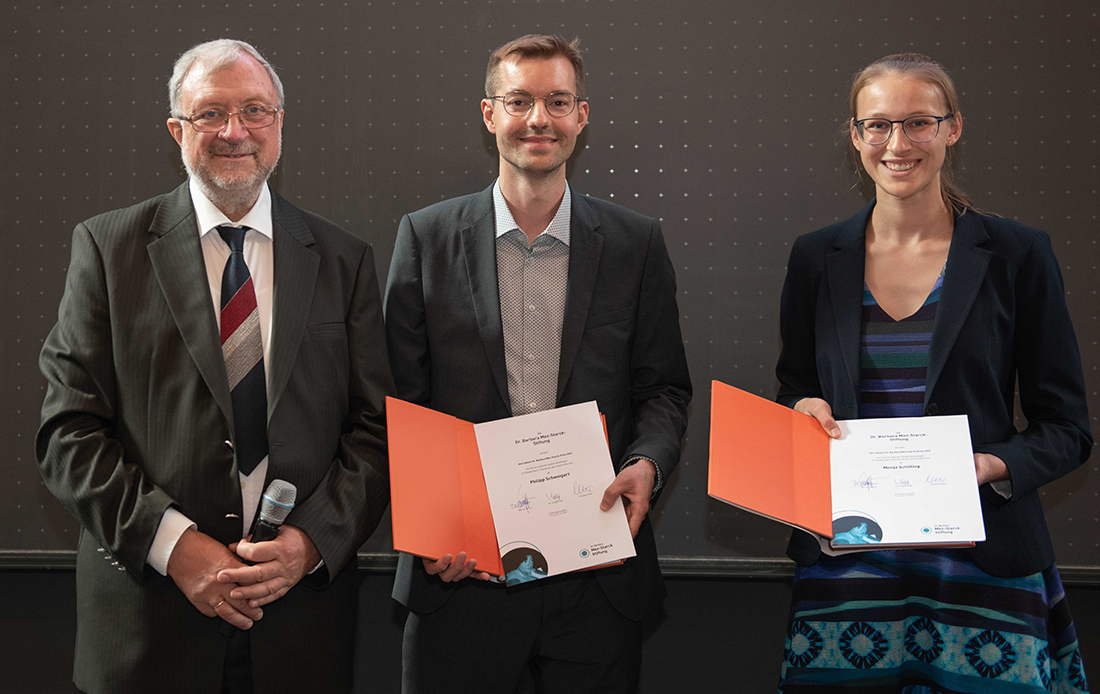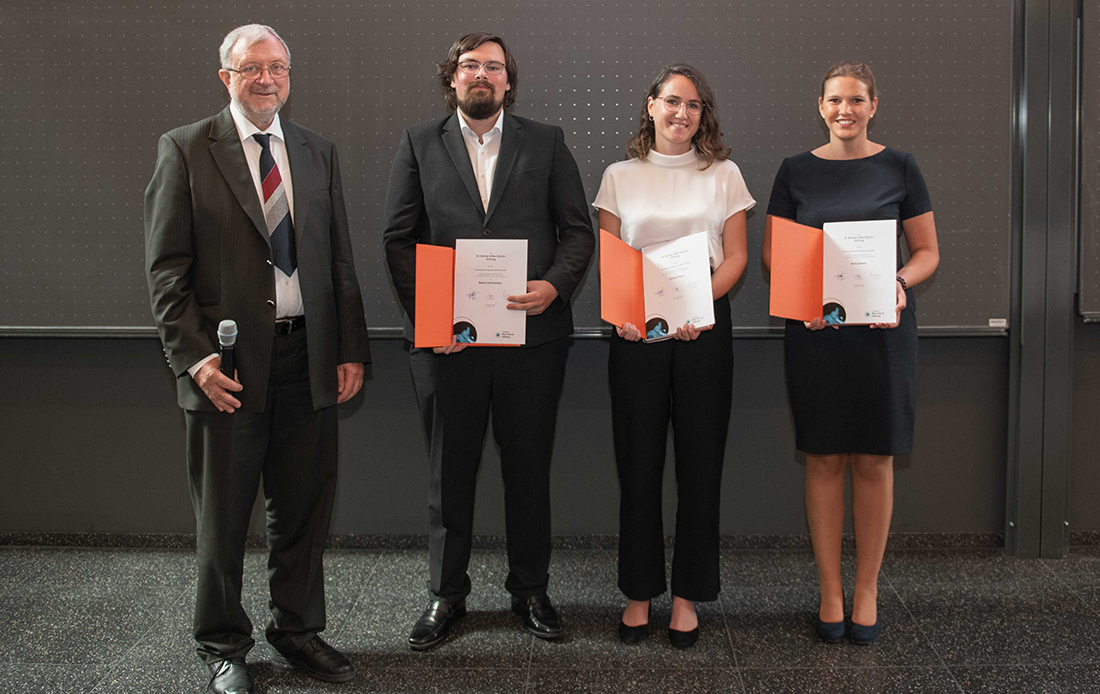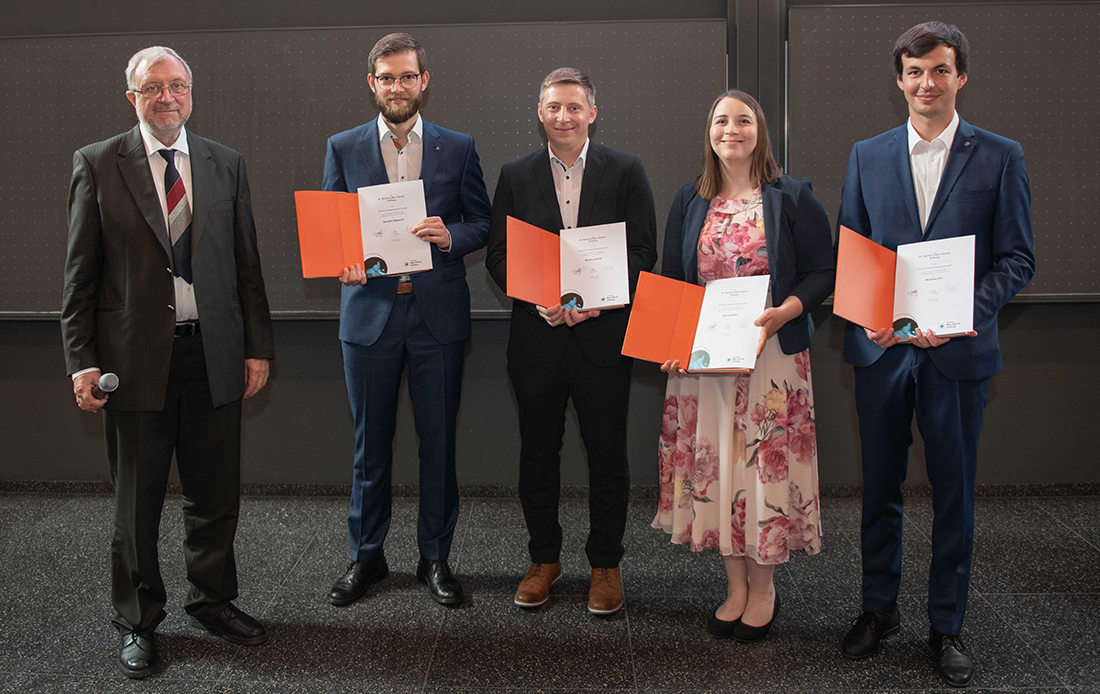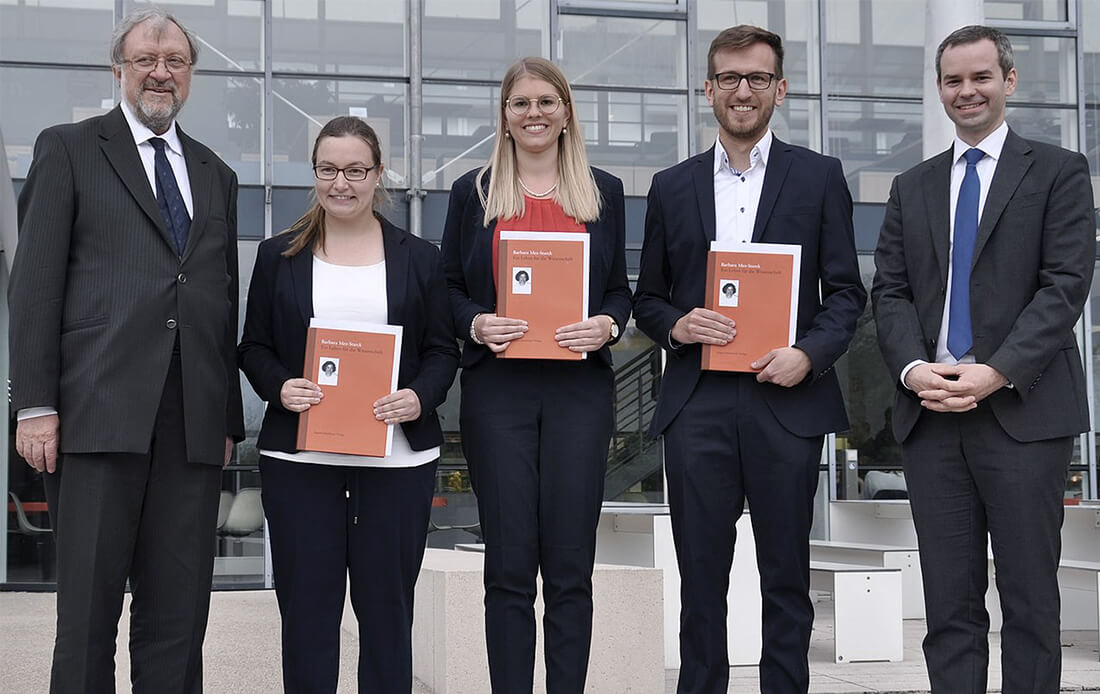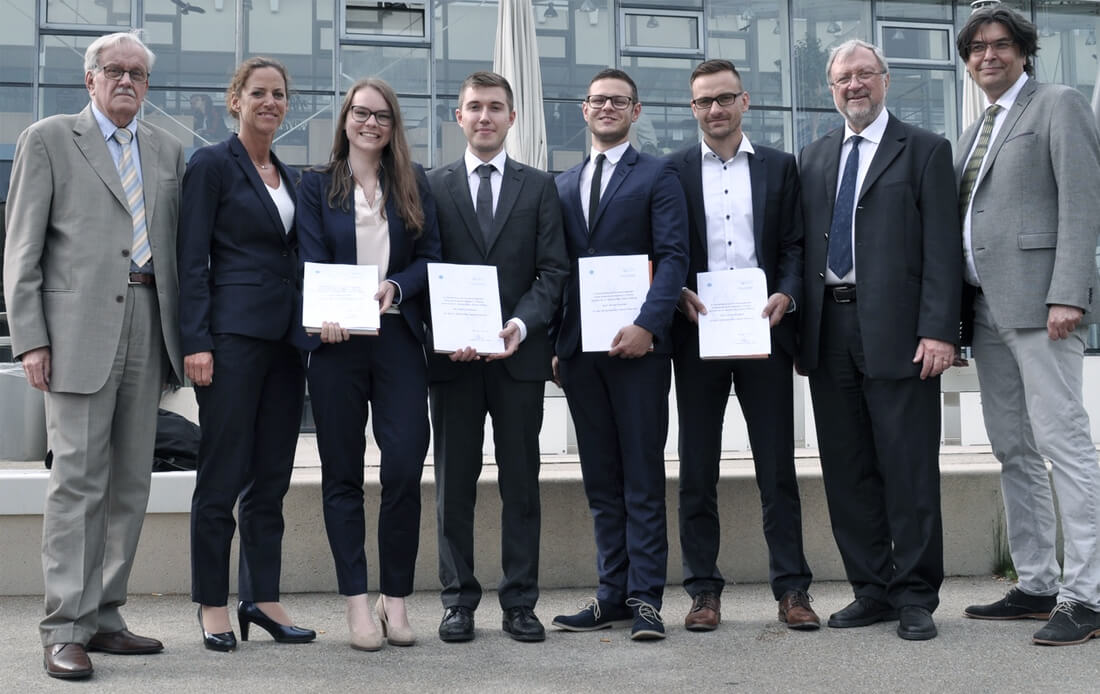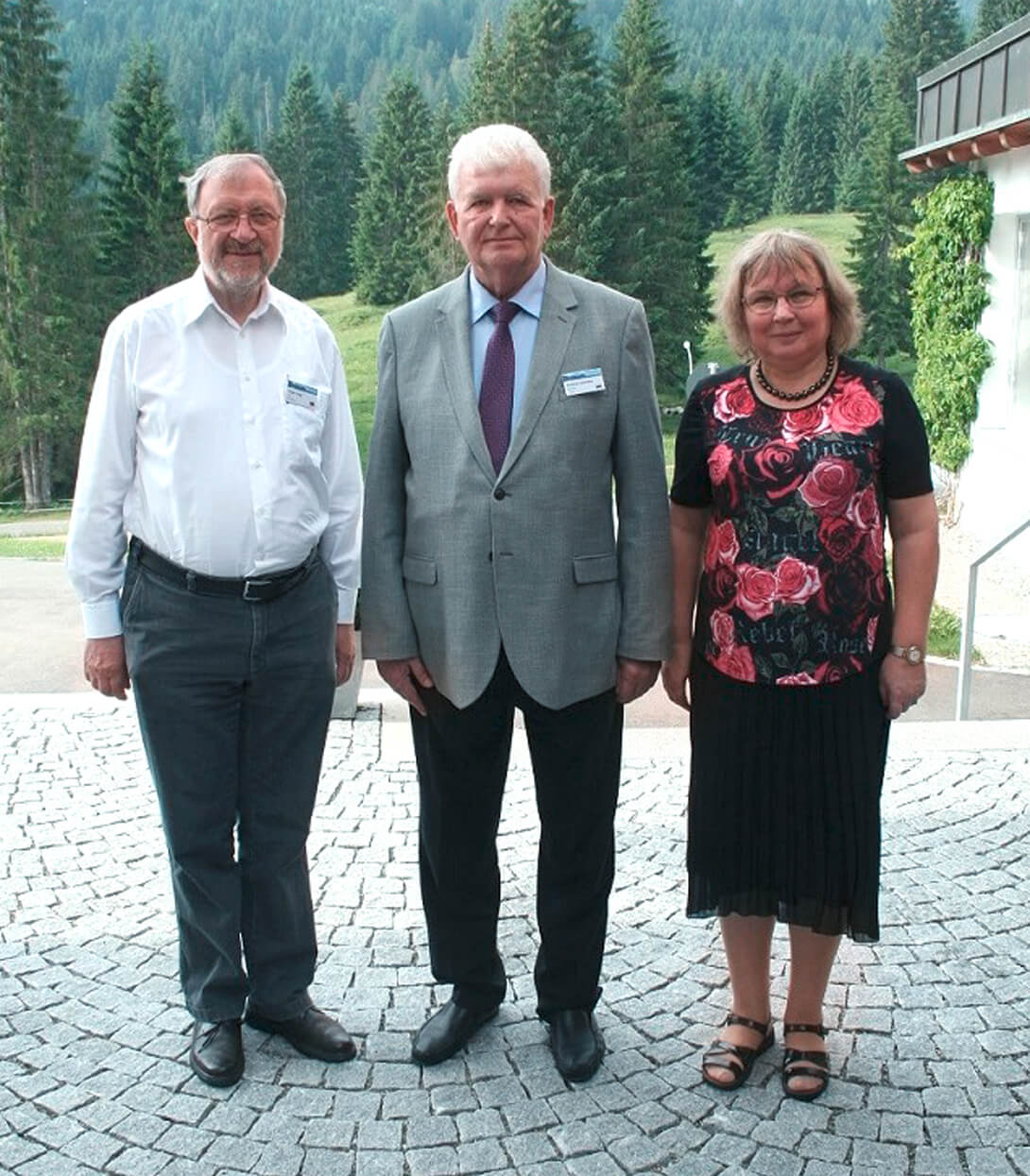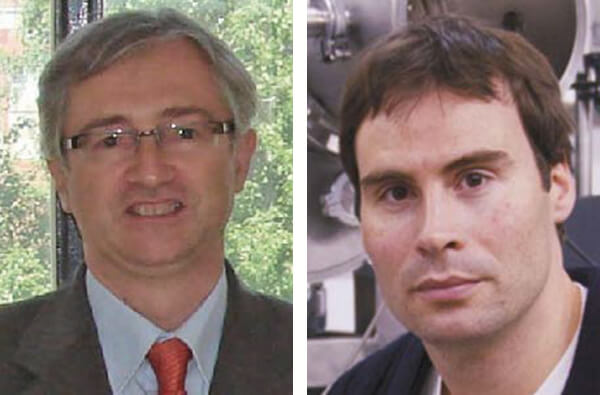
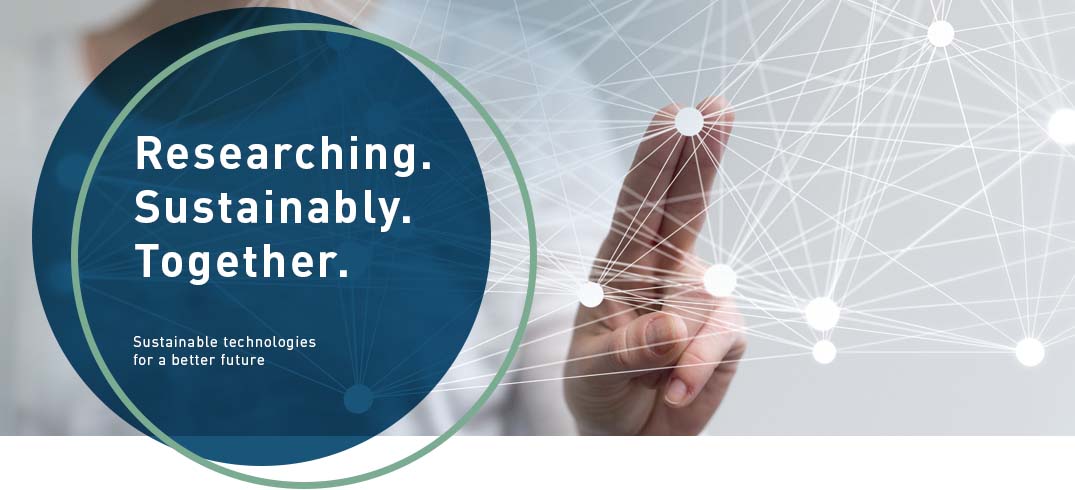
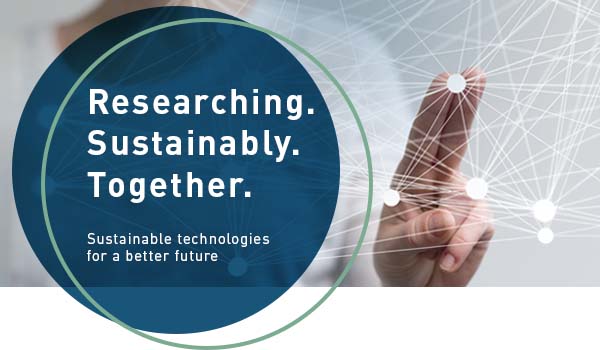
The Foundation
The non-profit foundation, which was established by doctor Barbara Mez-Starck in 1998, promotes spatially unrestrictedly science and research in the field of natural sciences, especially in chemistry and physics.
The purpose of the foundation is to be achieved in particular through support of the section Chemical Information Systems (formerly Spectra and Structure Documentation) at the University of Ulm, which maintains and develops doctor Barbara Mez-Starck life's work.
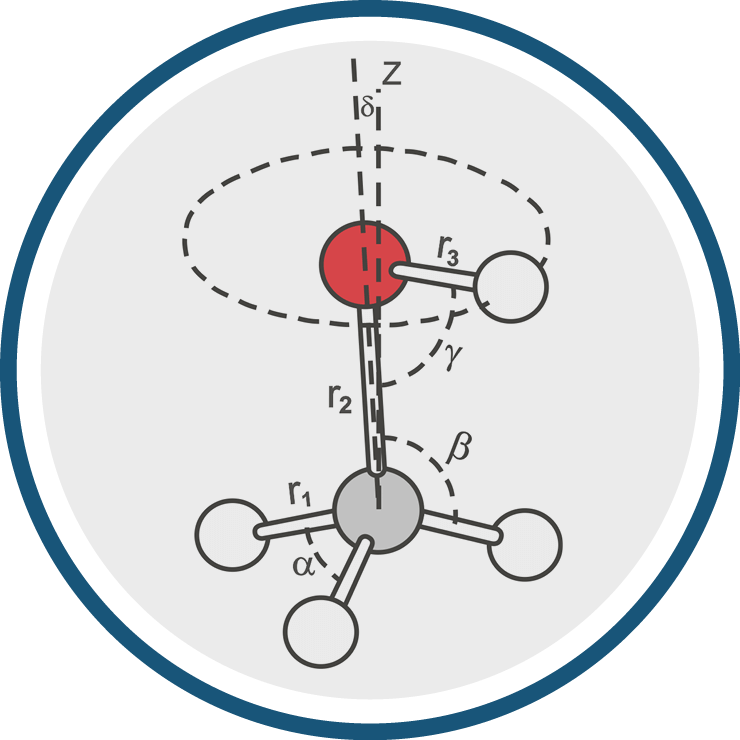
Board of Management
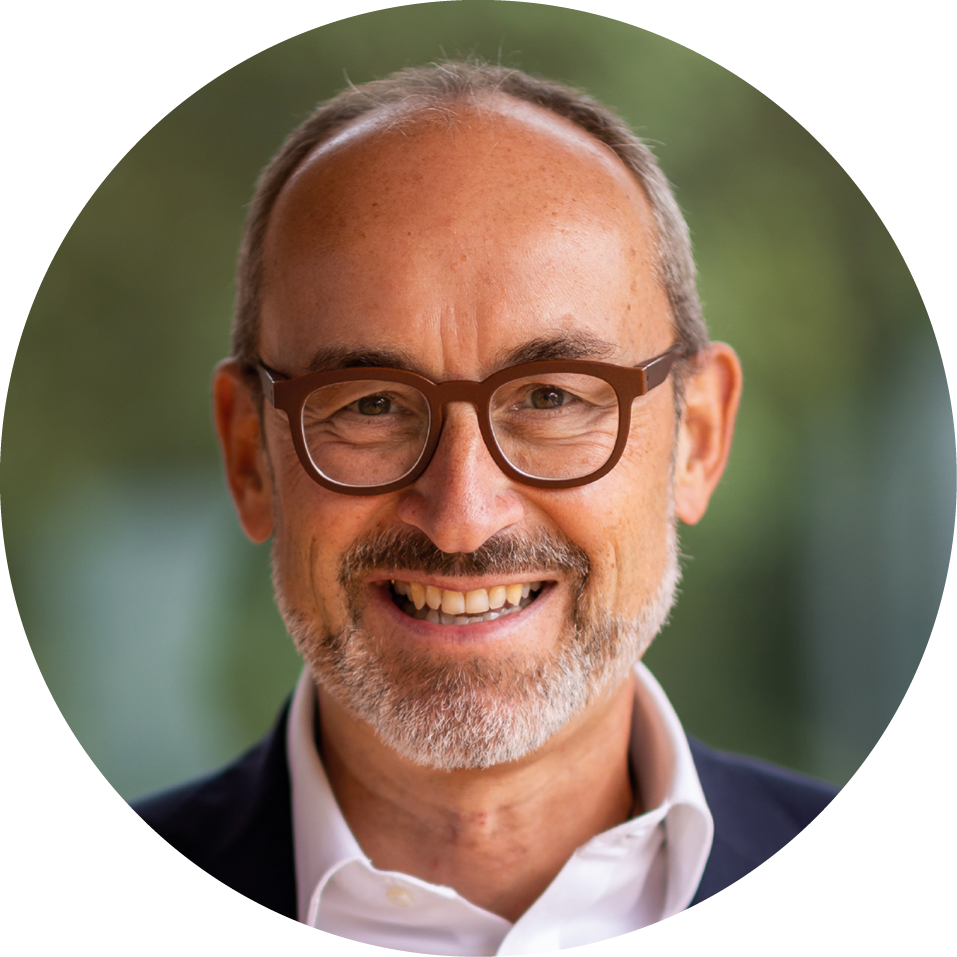
Werner Braun
former group executive management and bank manager of Commerzbank,
self-employed trainer and coach in the field of character and management guidance
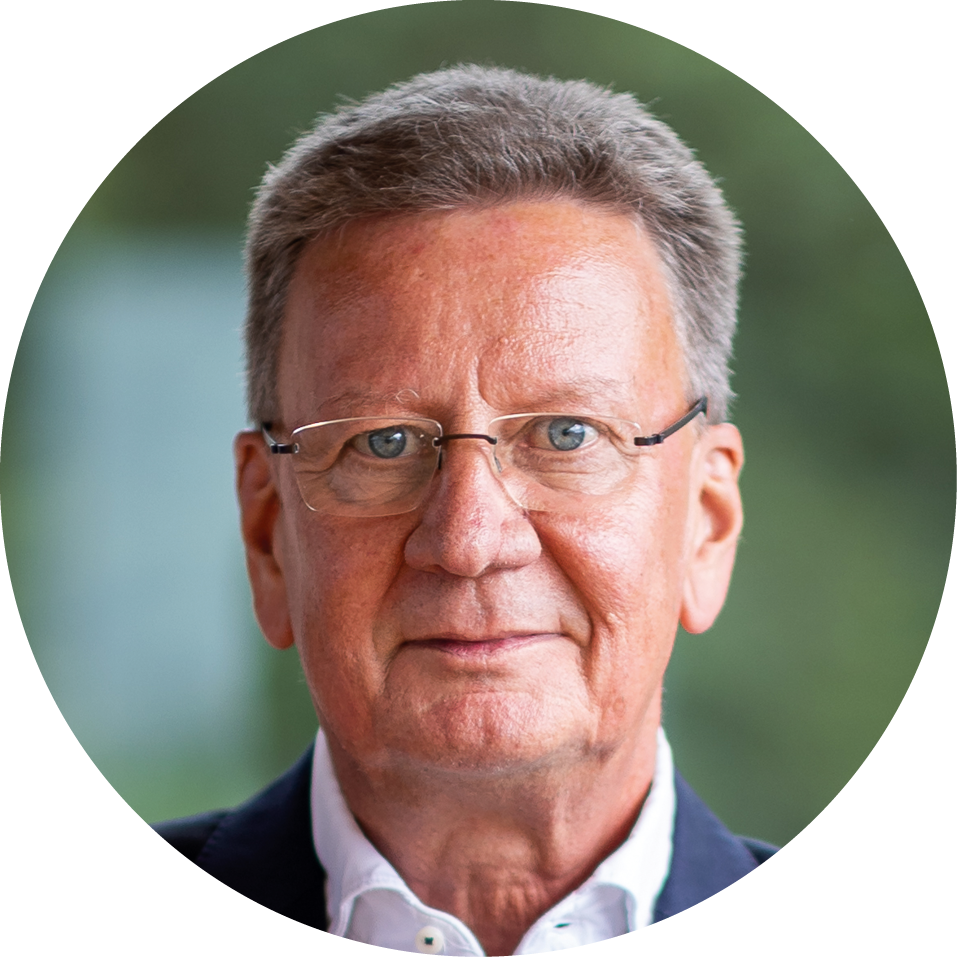
Thomas Vetter
managing board
Commerzbank Munich
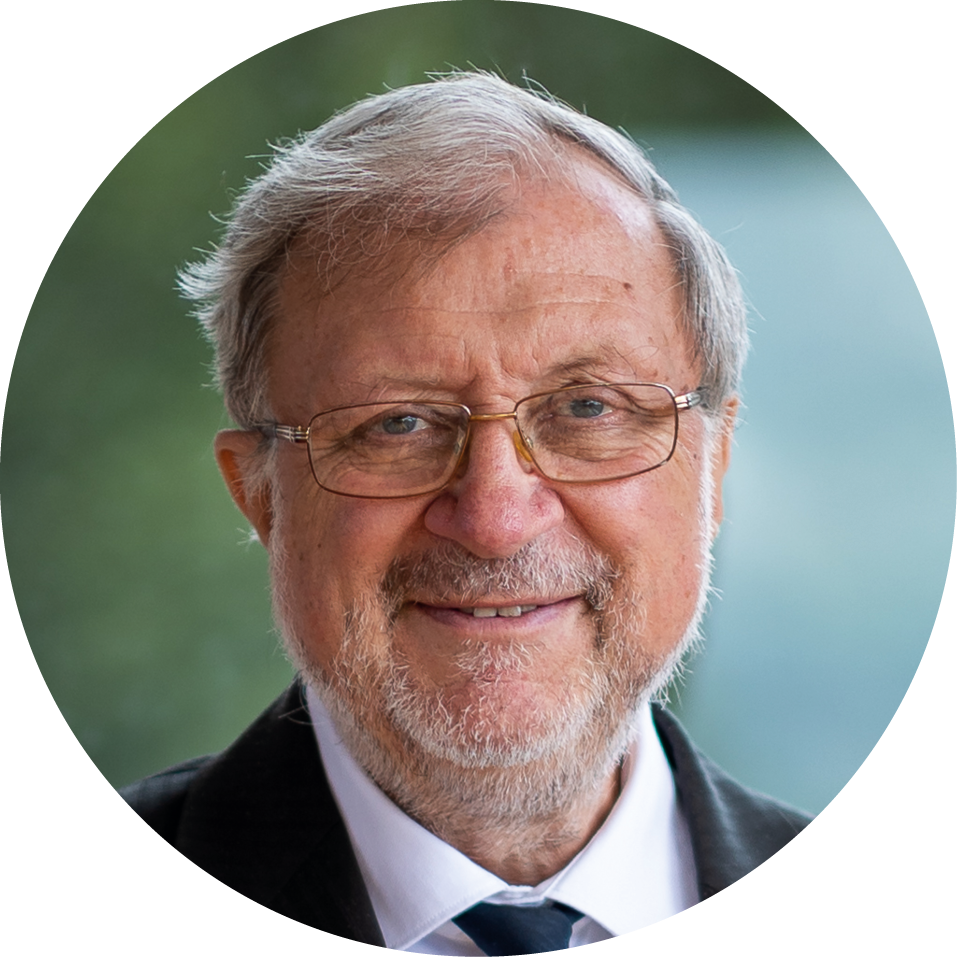
Dr. Jürgen Vogt
former head Chemical Information
Systems, University of Ulm
Advisory Board

Prof. Dr. Karl Joachim Ebeling
former president
University of Ulm
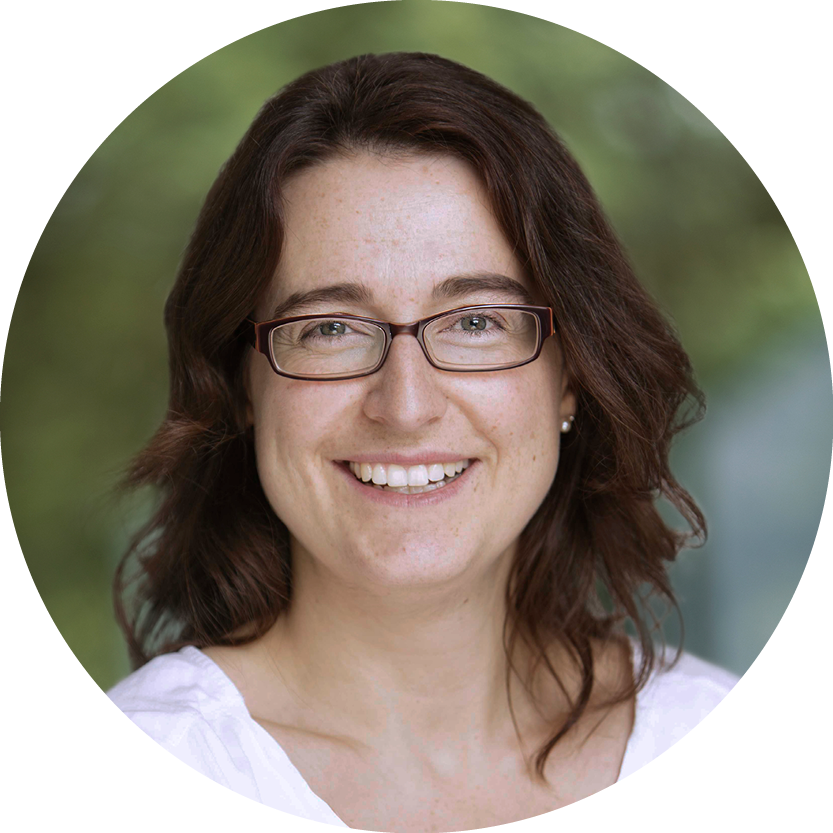
Prof. Dr. Melanie Schnell
professor for physical chemistry
Deutsches Elektronen-Synchrotron DESY Hamburg
and Universität zu Kiel
Hamburg

Hartmut Grünert
former bank director
Freiburg

Volker Herrdum-Heinrich
former bank director
Freiburg
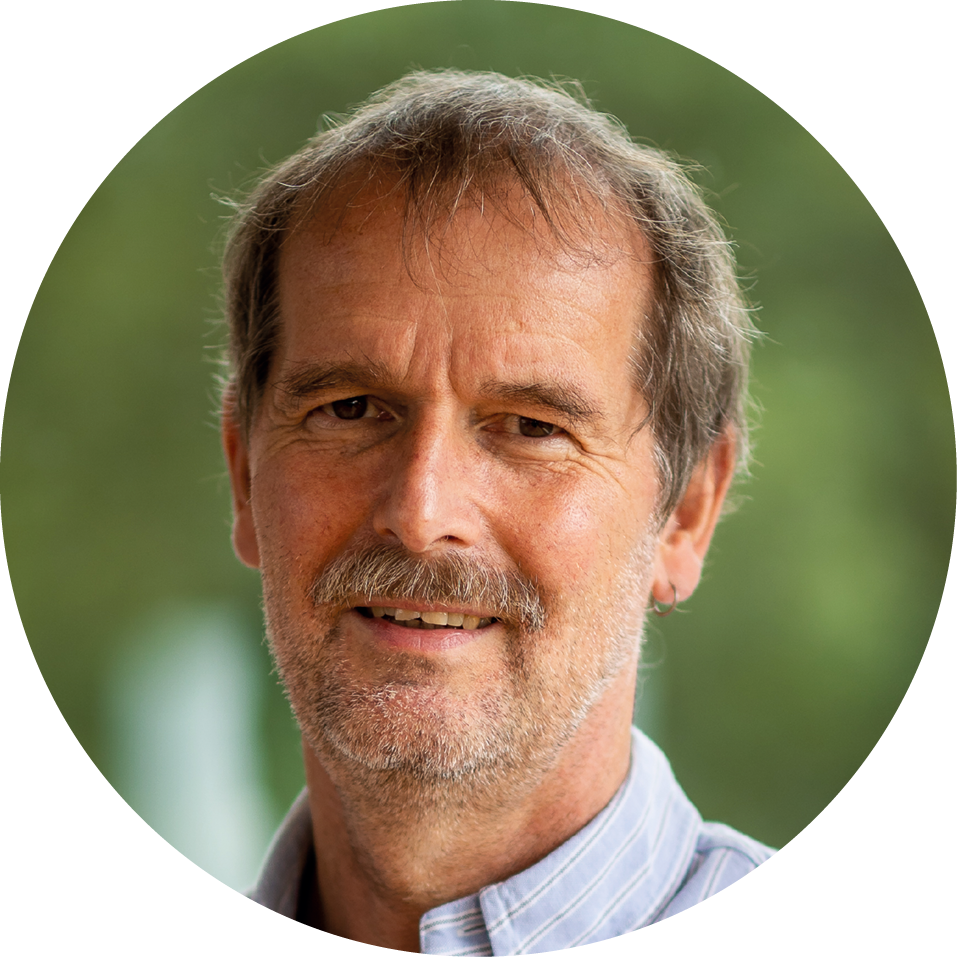
Prof. Dr. Axel Groß
professor for theoretical
Chemistry, University of Ulm
Supported Projects
The following projects have been or will be promoted by the doctor Barbara Mez-Starck foundation:
Endowed junior professorship for multiscale modelling at University of Ulm
Endowed Junior Professorship for Multiscale Modelling
Between 2011 and 2017, the "Junior Professorship for Multiscale Modelling in Computational Materials Sciences (Dr. Barbara Mez-Starck Endowed Professorship)" was funded at the University of Ulm. This was filled by junior Prof. Dr. Martin Korth, who has very successfully used methods of theoretical and numerical chemistry to specifically identify improved electrolytes for Li-ion batteries. A total of 25 publications have been created.
Grant for Windows PC pool at University of Ulm
Windows computer class for chemistry
In 2006 the foundation gave a grant to the University of Ulm to equip the computer class with new hardware and software. The class, which consists of 16 PCs and a special PC for the lecturer, replaces the old computer class from the end of 1990s and is equipped with extensive chemistry software.
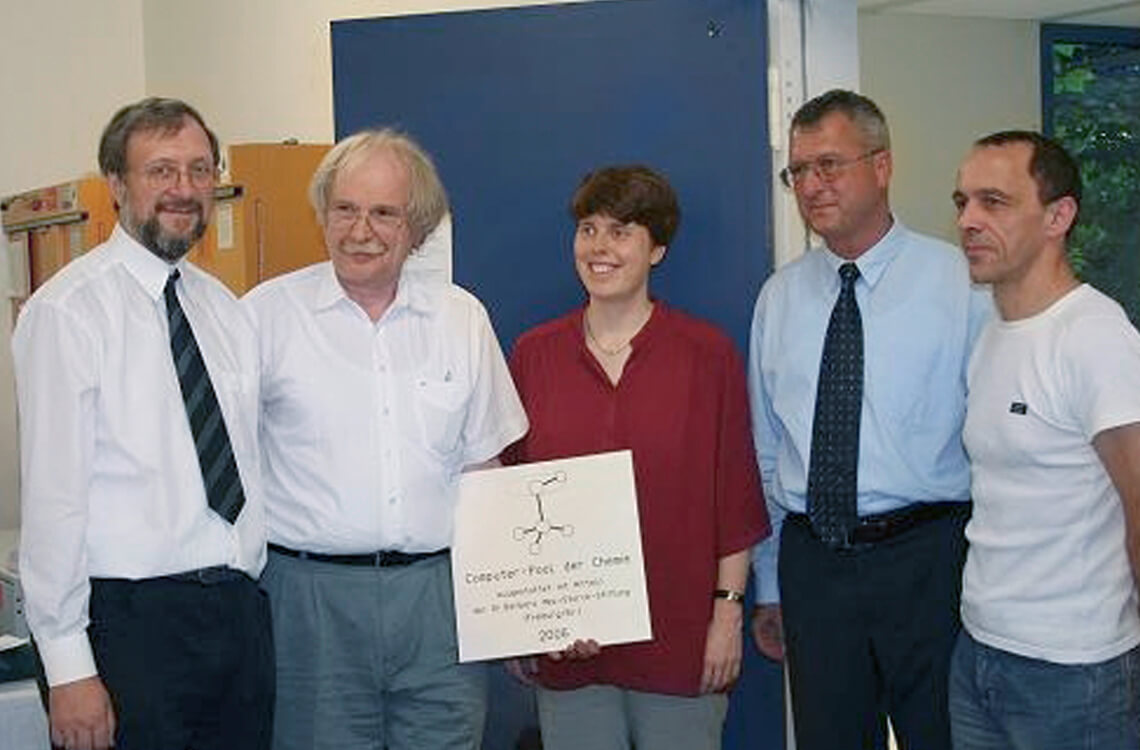
Modernization of gas electron diffraction apparatus at Moscow State University
Modernization of the Gas-Phase Electron Diffraction apparatus in Moscow
For many years the foundation has supported the scientific cooperation of the section Chemical Information Systems at the University of Ulm with the M. V. Lomonossov Moscow State University in the field of gas-phase electron diffraction for the precise structure determination of small and medium-sized molecules. Among others the foundation acquired a stabilized electron source.
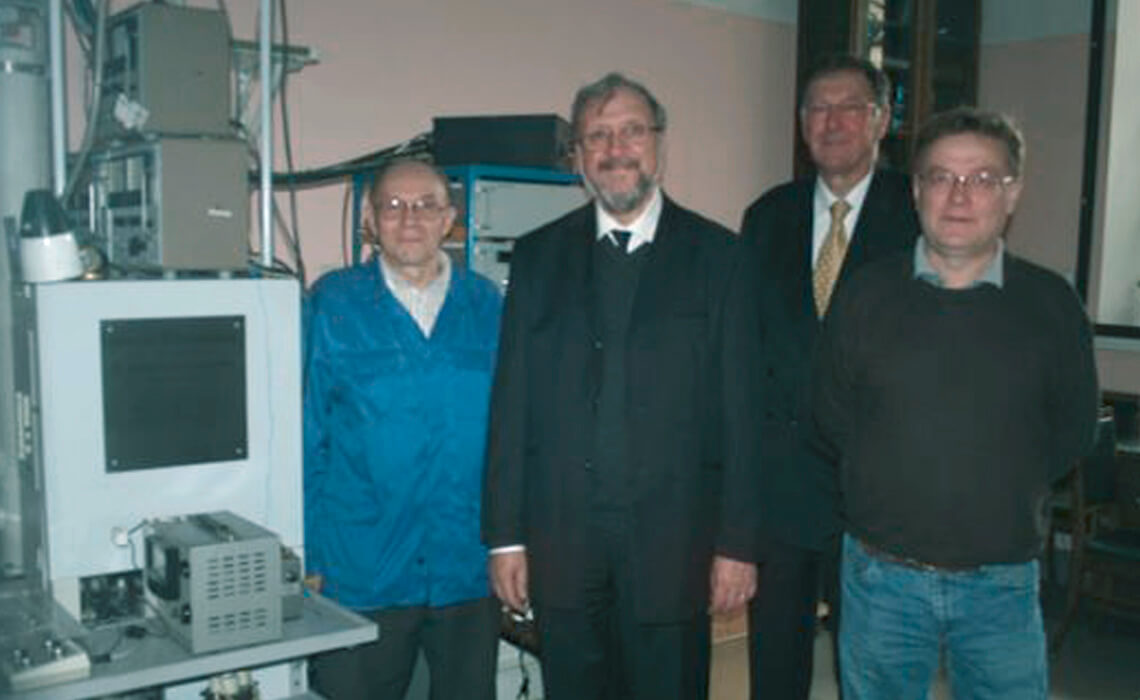
Database licenses at University of Ulm
Database Licenses at the University of Ulm
In order to teach students how to use electronic chemistry information, the following special databases (among others) were licensed by foundations funds:
- Roempp online
- Cambridge Structual Database
- Inorganic Crystal Structure Database
Establishment of Chemistry Computer Lab at University of Ulm
Chemistry Computer-Laboratory
In 2008 the University of Ulm and the foundation established a modern Chemistry Computer Laboratory. Advanced students are taught at 30 high-speed LINUX desktops in the modelling, computational chemistry, as well as the visualization of molecules, clusters, and surfaces (for example for the development of catalysts). The laboratory supplements the education in Windows based chemistry software.
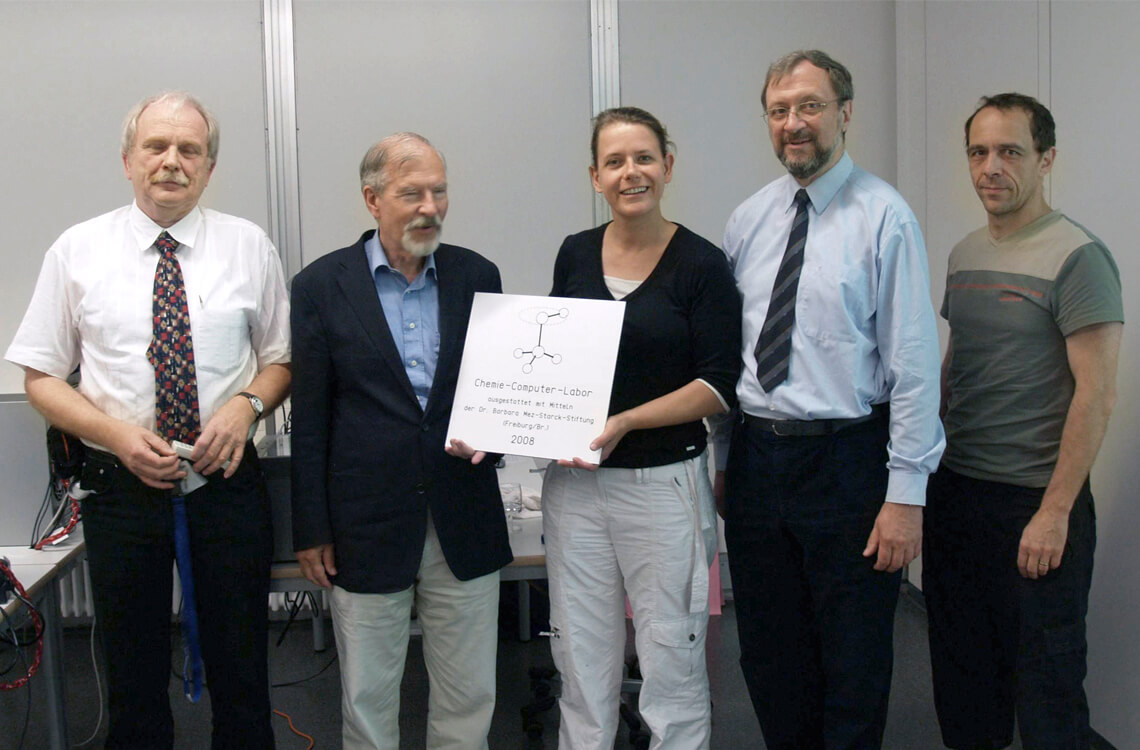
Grant for computer class at Moscow State University
Computer Class in Moscow
On October 9, 2014 the Windows computer class at the M. V. Lomonossov Moscow State University was inaugurated. Thanks to foundation funds the class was equipped with 18 desktops for computer applications in chemistry.
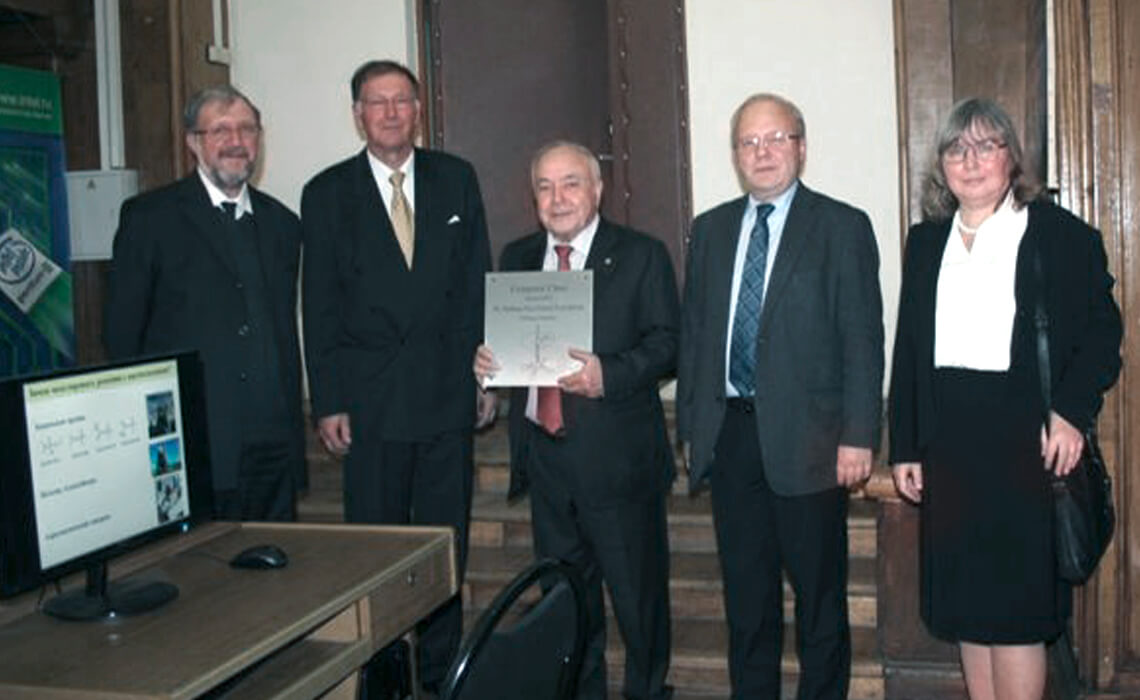
Deutschlandstipendium
Germany scholarships
Since 2021 the Dr. Barbara Mez-Starck foundation supports Deutschlandstipendium-scholarship for ten students in chemistry and physics at the University of Ulm.
Campus license for chemical desktop applications at University of Ulm
Campus License for ChemOffice at the Universität of Ulm
In the winter semester 2005/2006 a campus license of the globally leading program suite ChemOffice for chemical desktop applications was acquired at the University of Ulm by a one-time donation of the Dr. Barbara Mez-Starck foundation. Thereby the University of Ulm was one of the first German universities with an academic site license. After the expiration of the license the campus license was repeatedly extended by university-owned funds.
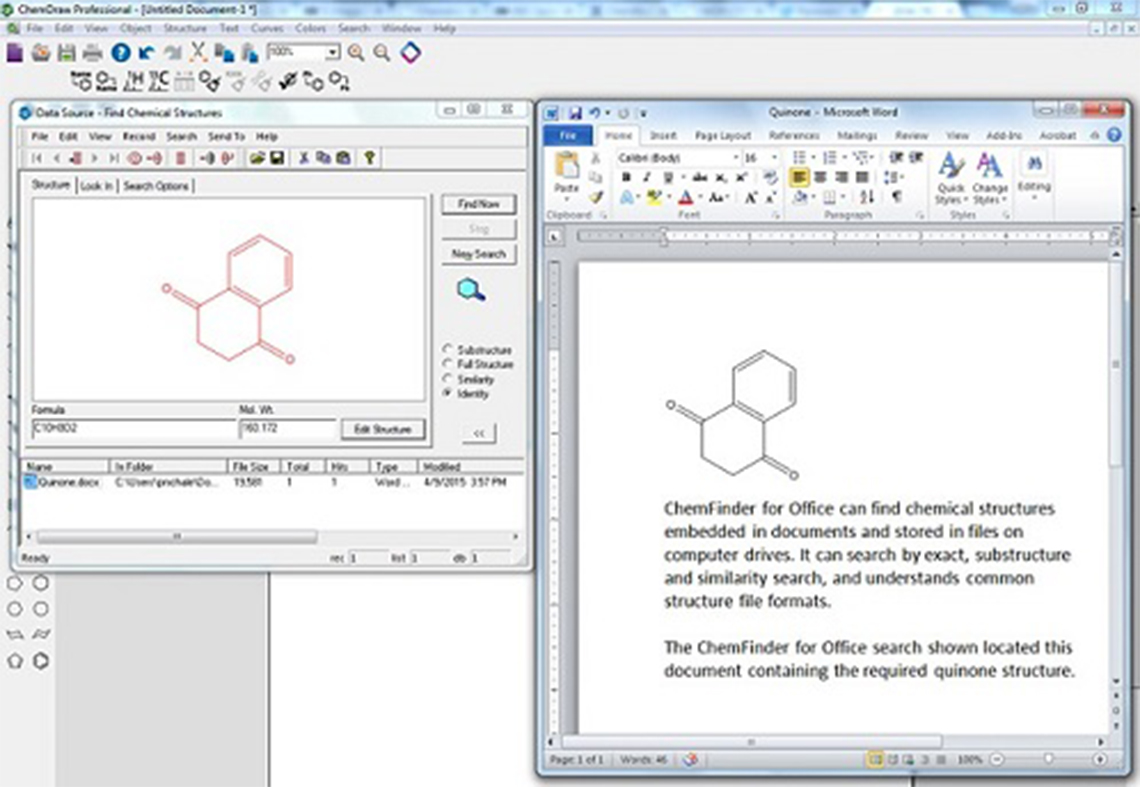
Further projects
Further supported Projects
Beside the projects described on particular web-pages the Dr. Barbara Mez-Starck foundation also has supported the following projects.
- annual sponsorships of physical-chemical e-journals for the University Library of Ulm
- repeated grants for the acquisition of important monographies for the University Library of Ulm
- acquisition of the leading software suite "Material Studio" (license for 4 years) to teach advanced chemistry students at the University of Ulm in the theoretical modelling of materials
- donation to the 39th International Chemistry Olympics in Moscow in 2007
Supported Projects
Development of MOGADOC Database
Grant for Windows PC pool at University of Ulm
Modernization of gas electron diffraction apparatus at Moscow State University
Establishment of Chemistry Computer Lab at University of Ulm
Grant for computer class at Moscow State University
Further projects
Supported Projects
Development of MOGADOC Database
Grant for Windows PC pool at University of Ulm
Modernization of gas electron diffraction apparatus at Moscow State University
Establishment of Chemistry Computer Lab at University of Ulm
Grant for computer class at Moscow State University
Further projects
DR. BARBARA MEZ-STARCK HOUSE
The foundation built a modern office and seminar building within walking distance to the university campus in Ulm. The compact and cubic building offers flexible space on four floors for university uses.
The building consists of a massive core with a reinforced concrete skeleton and an envelope of thermally insulated cross laminated timber. The outer facade is formed by high-pressure laminated boards and external sun protections as sliding elements. The wood-aluminum windows are triply glazed. The interior work is made by wood and exposed concrete.
On the roof the rainwater is collected and reused in the building. The ecologically sustainable house is tempered by an air-water heat pump which is coupled to a photovoltaic system.
For the environmental compensation the foundation bought eco-points from an ecological project near Ulm. The purpose is to create and maintain a structurally rich edge of forest with a native composition of trees (among others beeches and oaks).
On October 2022 the Dr. Barbara Mez-Starck House was inaugurated.
- Floor plan size:
circa 1800 m2 - Begin of construction:
end of 2020 - Completion:
August 2022 - Building-costs:
about 6.4 million Euro
LOCAL DR. BARBARA MEZ-STARCK PRIZES
In commemoration of the founder, each year since 2005 the foundation awards the local Dr. Barbara Mez-Starck Prize to the best graduates in chemistry at the University of Ulm.
Details of awarding
Normally three chemists will be awarded, who graduated during the previous academic year (deadline Sept. 30) within a total period of study of ten semesters (6 semesters for Bachelor plus 4 semesters for Master) and who belong to the best 10 % of the academic year. One cannot apply for this prize nor can be nominated by somebody else.
The selected three students will receive cash prizes, namely:
- first prize with 1000.- €
- second prize with 800.- €
- third prize with 600.- €
The awarding of the prize winners by representatives of the Foundation Board takes place during a special colloquium.
In a special colloquium on October 19, 2023 the best Master graduates in Chemistry at the University of Ulm were awarded by the Dr. Barbara Mez-Starck Prize for the academic year 2021/2022. Three second prizes were given to Riccarda Müller, Michael Steiner, and Lukas Forschner. The first prize was awarded to Alexander Rampf.
The subsequent special lecture was given by Prof. Katja Heinze (Johannes-Gutenberg-University Mainz). The lecture was entitled: „Earth abundant Metals for Emission, Sensing, Upconversion and Photocatalysis“.
INTERNATIONAL DR. BARBARA MEZ-STARCK PRIZES
The international Dr. Barbara Mez-Starck Prize is given on an annual basis, consisting of up to five thousand euros (5,000 €) and an appropriate memento. The purpose of the award is to recognize and encourage outstanding accomplishments in the field of experimental high-precision structural chemistry and molecular physics (including mainly gas electron diffraction, microwave and high-resolution infrared spectroscopy). A group of eminent workers in the field is asked for nominations.
On August 29, 2021 professor Melanie Schnell (Deutsches Elektronen Synchrotron in Hamburg) and professor Stephan Schlemmer (University of Cologne) were awarded at the 27th Colloquium on High Resolution Molecular Spectroscopy in Cologne.
Prof. Melanie Schnell (Deutsches Elektronen Synchrotron in Hamburg) was awarded for her outstanding studies of structural changes in water complexes with increasing amounts of water molecules as well as for her pioneering investigations of enantiomers and the separation of these chirally different molecules.
Prof. Schlemmer (University of Cologne) received the prize for his pioneering high-resolution spectroscopic studies of molecular ions by light-induced reactions in ion traps especially for his spectroscopic investigations of the highly flexible methanium ion CH5+, which plays a key role in chemistry and in the astrophysical exploration in space.
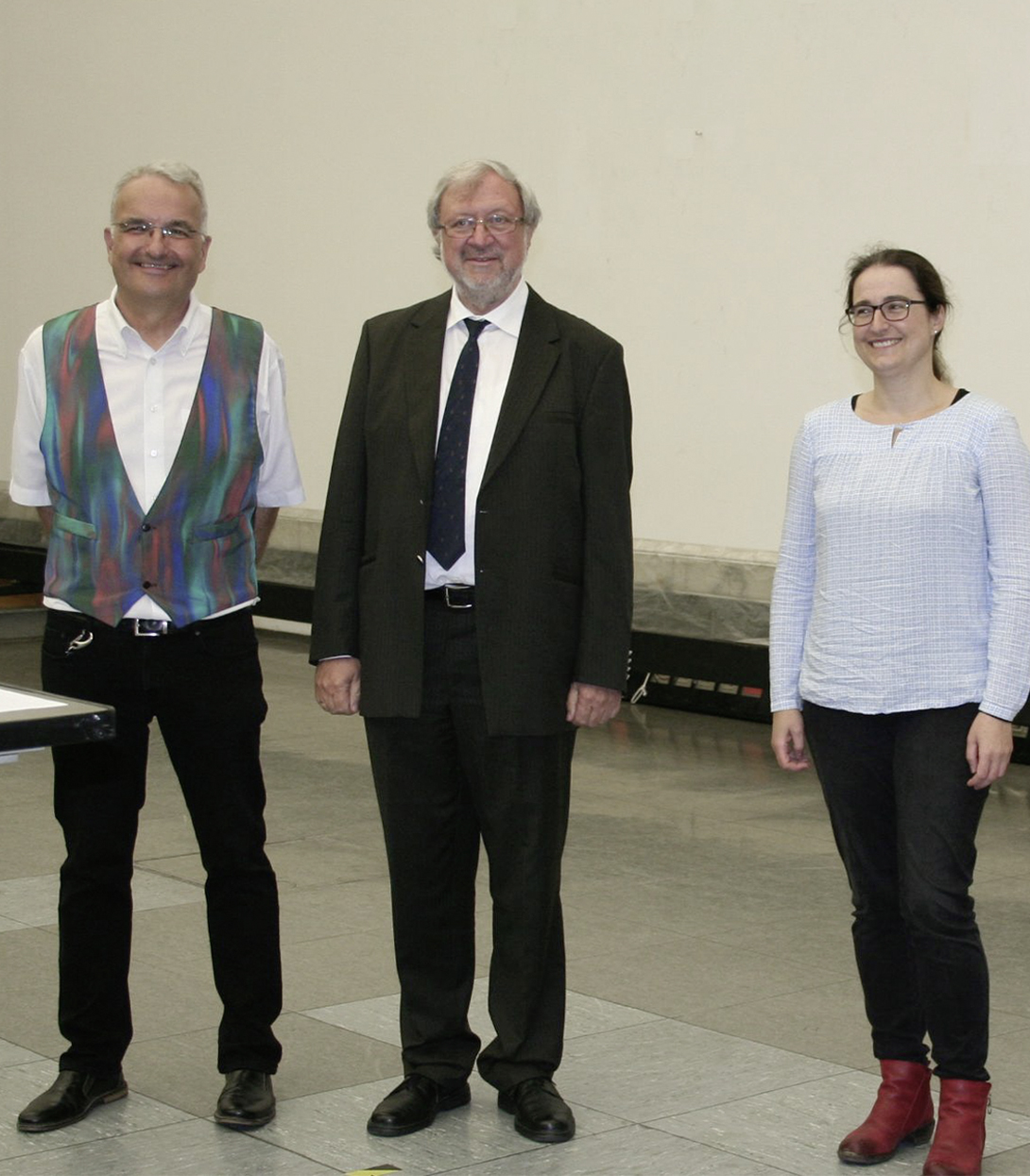
Previous winners
2021: PROF. DR. MELANIE SCHNELL AND PROF. DR. STEPHAN SCHLEMMER
2020: not awarded
2019: Prof. Dr. Anatoly A. Ischenko
2018: Prof. Dr. Alberto Lesarri and Prof. Dr. Emilio J. Cocinero
Awardees before 2018
FUNDING GUIDELINES
According to the foundation's statutes, the foundation funds scientific projects that are based in the natural sciences, primarily chemistry and physics, and are not related to medicine. The funding of academic teaching is not excluded.
NOTE: As the foundation is already involved in ongoing projects, no further applications are being accepted at this time.
